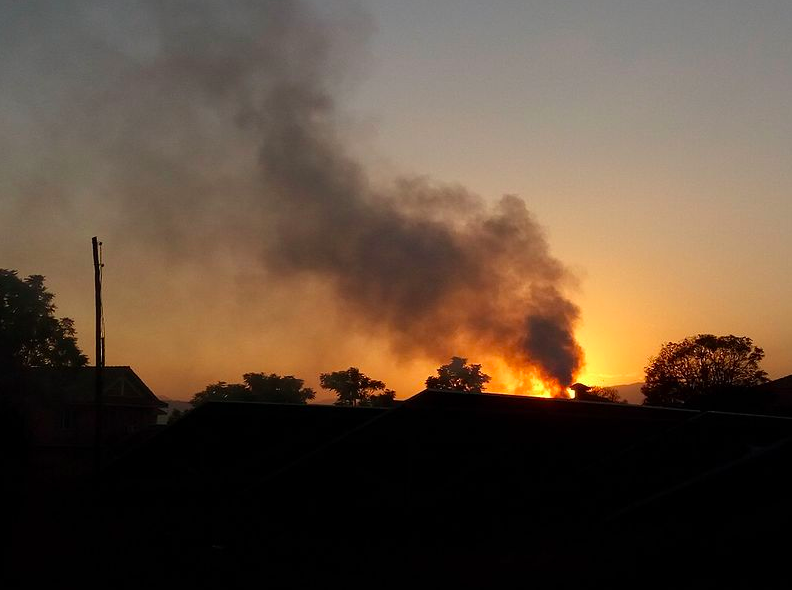The Freedom Convoy protest in Ottawa, which took place from January to February 2022, drew attention to the rise of right-wing extremism. Some protestors at the Convoy carried Confederate flags, Swastikas, and other hate symbols that contained anti-Semitic, Islamophobic, anti-Black racist, homophobic, and transphobic language and images. While these views may represent a minority of the protestors, the Convoy signals the dangers of mobilized right-wing extremism in Canada and other NATO member states.
The protest may have provided an outlet for many far-right extremist groups to gain traction. The Canadian Trucking Alliance disapproved of the protest in January. In a statement, they wrote that the overall “vaccination rate among truck drivers closely mirror[s] that of the general public,” indicating that the protest was not simply about Canadian vaccination mandates and spans a variety of beliefs. A leak of the Convoys’ fundraising site exposed many of the involved activists and their donors, who were traced to various other far-right agendas, including “activism against COVID-19 vaccines, American democracy, and the Black Lives Matter movement in the United States.”
Richard A. Parent and James O. Ellis at the Canadian Network for Research on Terrorism, Security and Society argue that extremists abroad stoke extremism in Canada. Similarly, an Institute for Strategic Dialogue report finds that extremist trends in Canada appear to be significantly influenced by US activity. The report noted concerns that “Canadian right-wing extremists look to their US counterparts for inspiration” and tend to become inspired by movements within right-wing US politics. Within this context, American support for President Donald Trump and the social unrest that arose in response to coronavirus restrictions may have encouraged the explicit right-wing ideologies and distrust in government seen in Canada this year.
NATO members, including Canada and the US, have faced white supremacy and right-wing extremism before. In the 1920s, the emergence of the Canadian Klu Klux Klan can be traced to US origins. Similarly, antecedents of Hitler’s Nazi Germany encouraged Neo-Nazism and anti-Semitic uprisings in Canada in the late twentieth century.
Today, the switch to online platforms that the pandemic demands makes members of the public all the more vulnerable to right-wing extremist platforms and posts from abroad. In an interim report, Jacob Davey, Cécile Guerin, and Mackenzie Hart note several other visible trends Canada linked to the pandemic. Notably, “extremist conspiracy theories have flourished, and minority communities – in particular Asians – have been subject to increased hate crimes and harassment.” The right-wing extremism in Canada and globally may demonstrate the continuous and returning nature of right-wing extremism.
These sorts of extremism espouse the threat of domestic terrorism. According to the Centre for Strategic and International Studies, 2020 saw record-breaking domestic terrorist attacks in the US. These attacks occur far more often than Islamist terrorist-motivated attacks. In 2015, the Canadian Security and Intelligence Service identified white supremacists as a greater threat than Islamic extremists.
The mobilization of individuals toward right-wing extremism also presents a threat to NATO’s allies in Europe. These domestic terrorist attacks evolve hand in hand with an anti-government and nationalistic agenda—posing a risk to national security and values fundamental to NATO’s mission, such as the protection of democracy. Some of the first intended domestic terrorist attacks against NATO arose from right-wing extremism. In 2021, far-right Italian neo-Nazis were caught “planning to bomb a NATO base” in Rome, Italy.
The manifestations of rising right-wing extremism can be seen elsewhere in Europe through the rise of right-wing populism. In the UK, these trends were exemplified in 2019 by the success of the UK Independence Party, a right-wing populist party, as their voters tended to hold underlying Nativist sentiment and express distrust in political elites. Right-wing extremism is also thriving among NATO’s eastern member states, notably in Hungary, where Viktor Orban’s National Populist Party is in power. His party consistently violates democratic values and bolsters an anti-LGBTQ+ agenda.
To tackle the root of the problem of right-wing extremist mobilization, countries like Canada may need to ramp up their education, public accountability, and resistance contends Barbara Perry of the Ontario Tech University. In her Ted Talk, she argued that through education Canada can assess the harms associated with these far-right groups and use that knowledge to enhance public awareness and public policy and programming.
Right-wing extremism poses a danger to national and global security and threatens the fundamental values of equity, inclusion, and respect for diversity enshrined in the Canadian Multiculturalism Act. Although the far-right discourse we saw earlier this year appears to have slid from the public eye for the time being, it may not be long until the next social or political tension spurs right-wing extremists to the fore.
Photo: “Signs and flags on trucks and vehicles during Freedom Convoy blockade against Coronavirus mandates,” (2022), by author Valmedia via DepositPhotos. Licensed under CC https://depositphotos.com/569203896/stock-photo-canadian-trucker-freedom-convoy-protest.html
Disclaimer: Any views or opinions expressed in articles are solely those of the authors and do not necessarily represent the views of the NATO Association of Canada
Author
-
Jordan McEwen is a fourth-year student at Queen’s University, pursuing Political Studies and Psychology. Outside of her education, Jordan is a full-time researcher at the Institute of Intergovernmental Relations at Queen’s University, where she is currently writing a paper on the role of women in transnational crime. Her research passions include political psychology, the role of international organizations, most prominently NATO and the UN, international and domestic Canadian law, and global foreign policy.
View all posts




